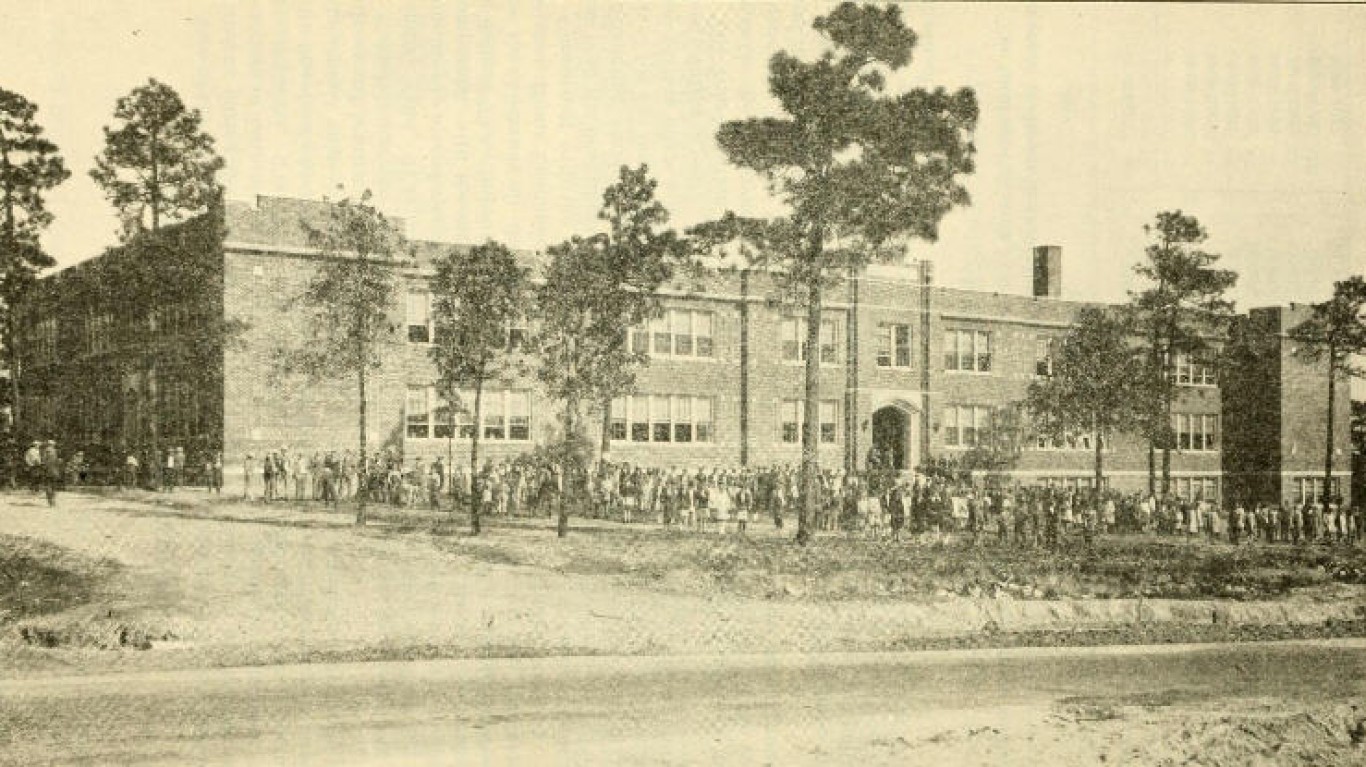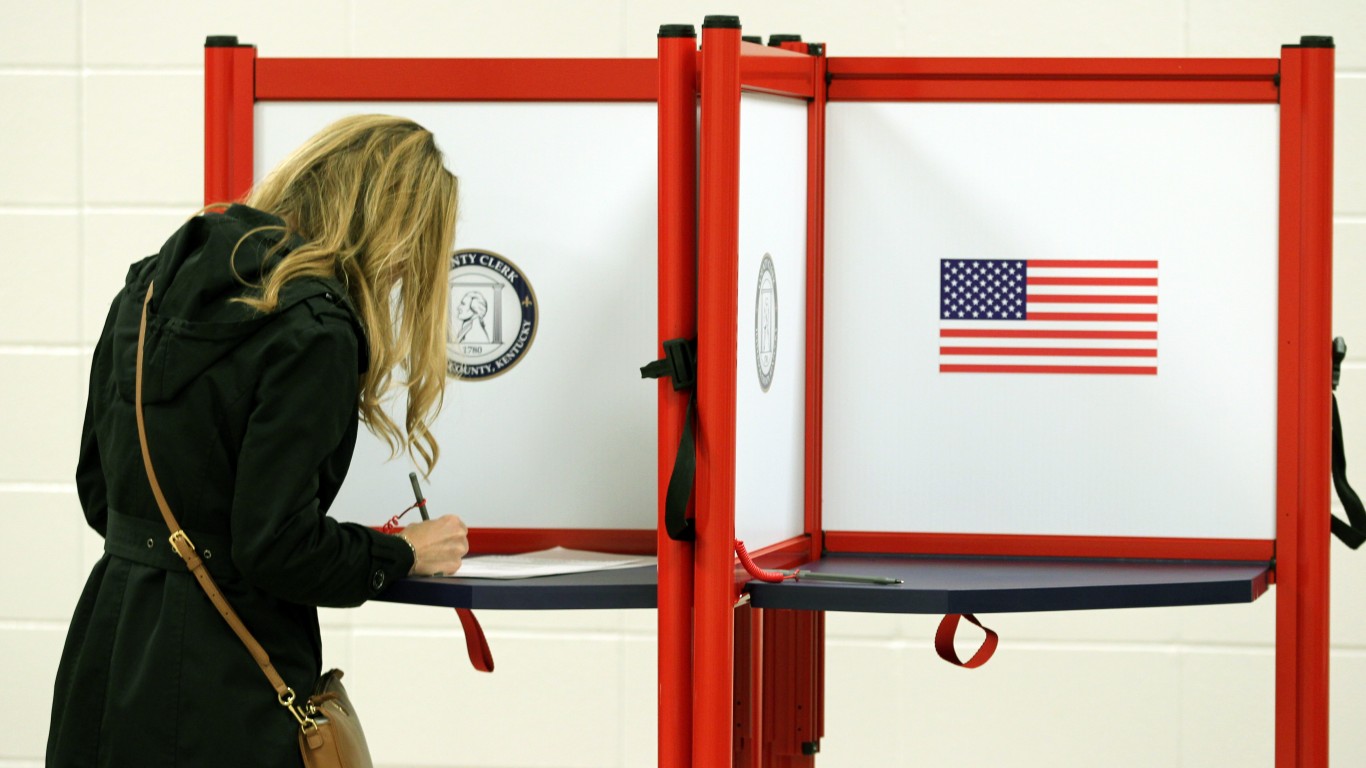
Every four years we add an extra day to February called leap day to keep our calendar aligned with the Earth’s revolutions around the sun. It takes 365 days, 5 hours, 48 minutes, and 45 seconds for our planet to travel around the sun.
If we didn’t add the extra day in February every four years, we would lose nearly six hours every year. That can add up — our calendar would be off by about 24 days after just 100 years if we didn’t make the adjustment.
Even though a leap day occurs every four years, significant news events have happened on Feb. 29 throughout history, among them one of the most notorious in colonial America. On Feb . 29, 1692, the first three women were accused of witchcraft in Salem, Massachusetts — a city founded before the American Revolution (here are 100 towns founded before the American Revolution). This led to the infamous Salem Witch Trials.
247 Wall St. compiled a list of the most notable events that have occurred on leap days throughout history.
Click here to see 25 leap days that made the news.
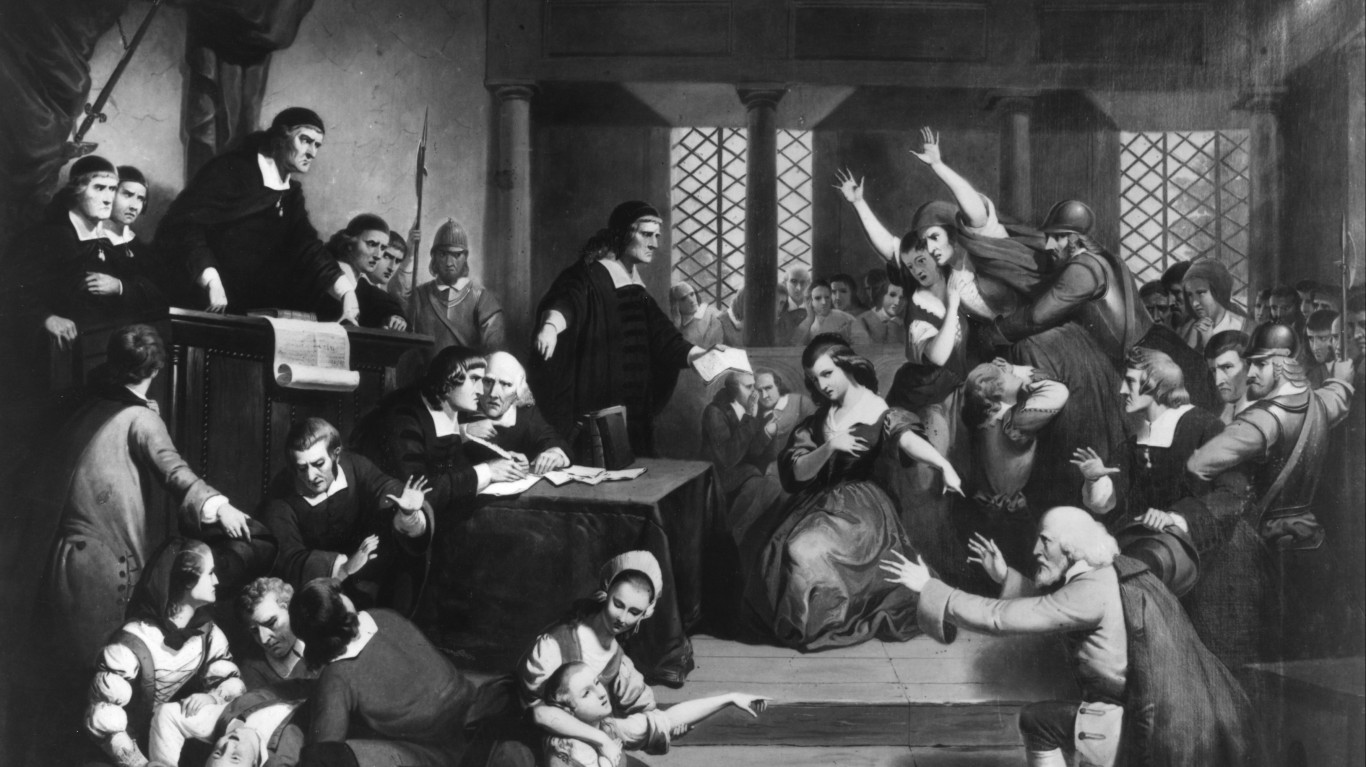
1. Friday, Feb. 29, 1692
One of the most notorious chapters in American history began on this date in Salem, Massachusetts, when three women–a slave, a homeless person, and a poor person–were accused of witchcraft that led to a hysteria that ultimately claimed the lives of 19 people by hanging.
[in-text-ad]

2. Monday, Feb. 29, 1904
President Theodore Roosevelt named a commission to oversee the construction of a canal through the Isthmus of Panama. Construction of the Panama Canal would end 10 years later.
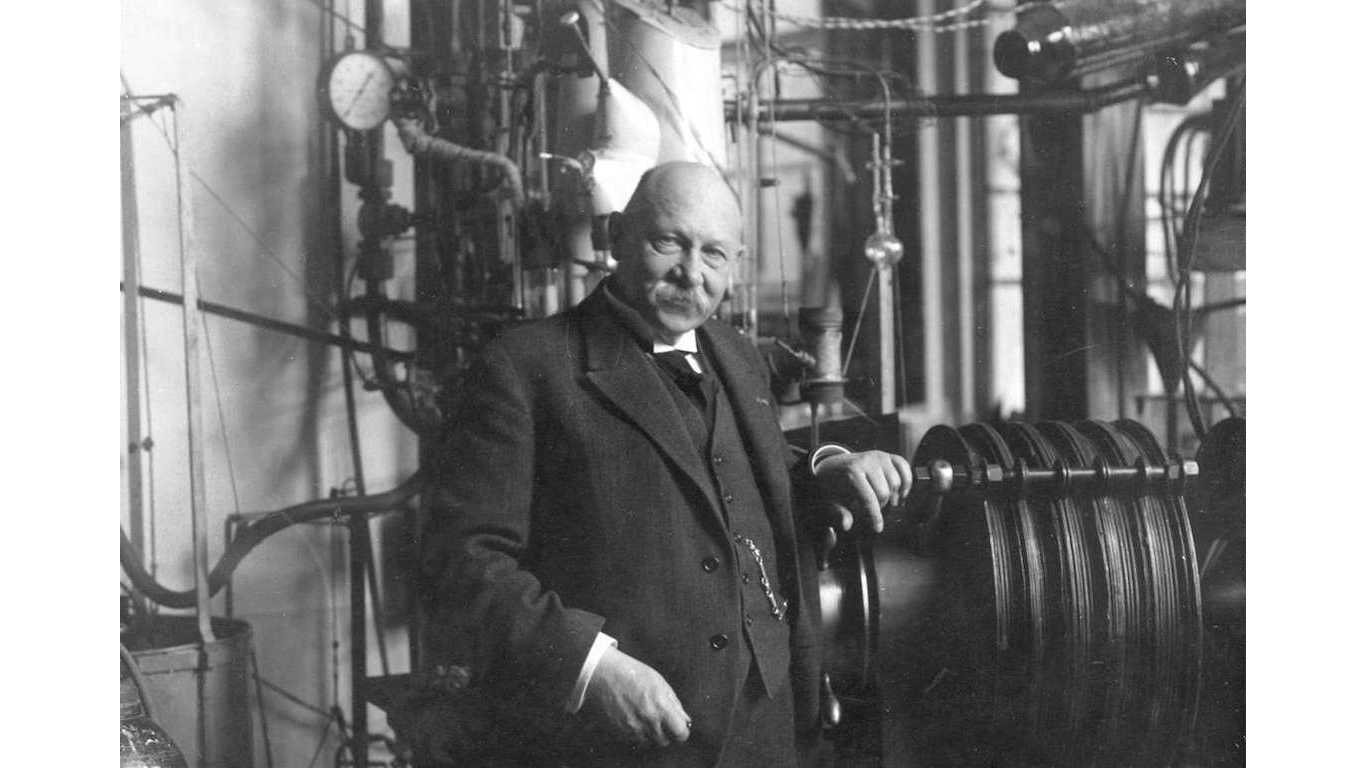
3. Saturday, Feb. 29, 1908
Dutch scientist Heike Kamerlingh Onnes produced solid helium for the first time. By the late 19th century, scientists had succeeded in liquifying every gas–all of which liquify by 13 degrees above zero–except for helium. Onnes would receive the Nobel Prize in Physics in 1913.
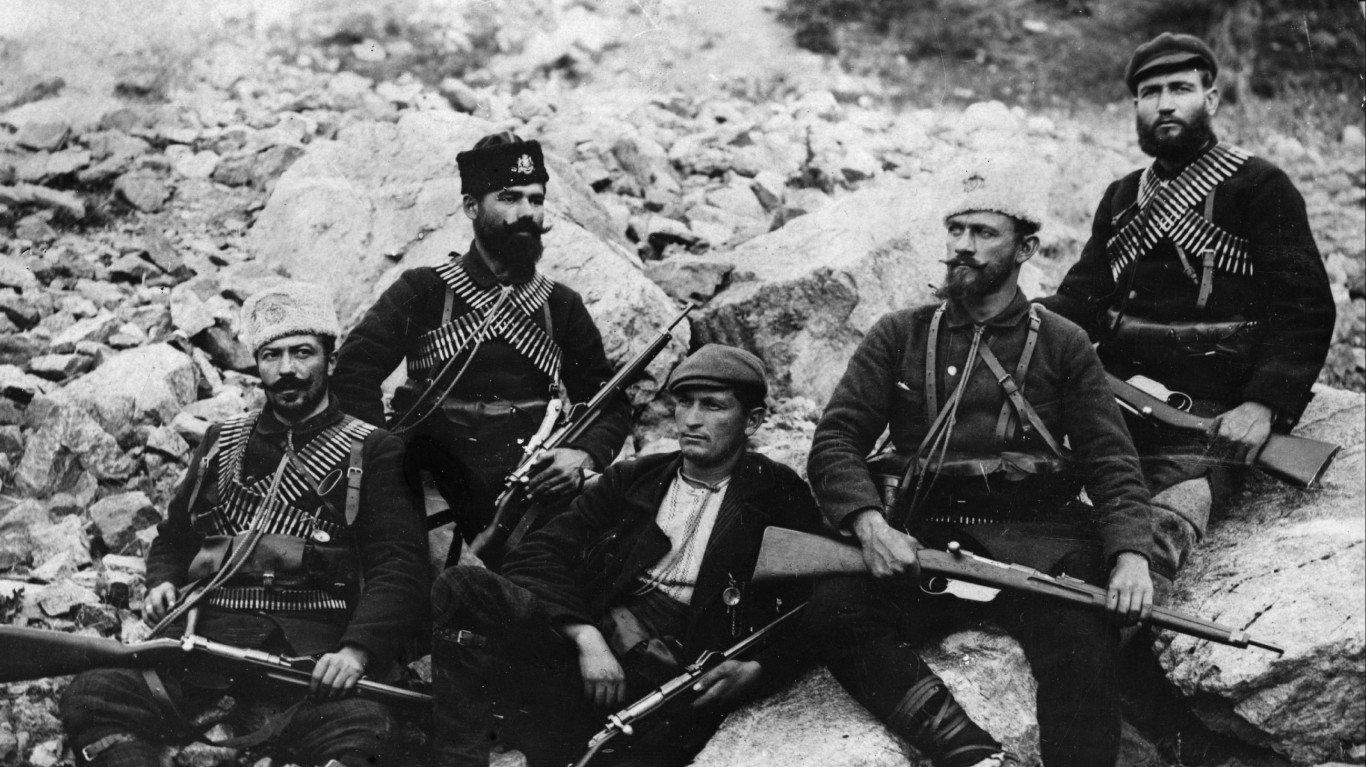
4. Thursday, Feb. 29, 1912
Serbia and Bulgaria signed a mutual defense treaty, pledging to come to each other’s defense for a period of eight years. The nations would be on opposite sides during WWI.
[in-text-ad-2]
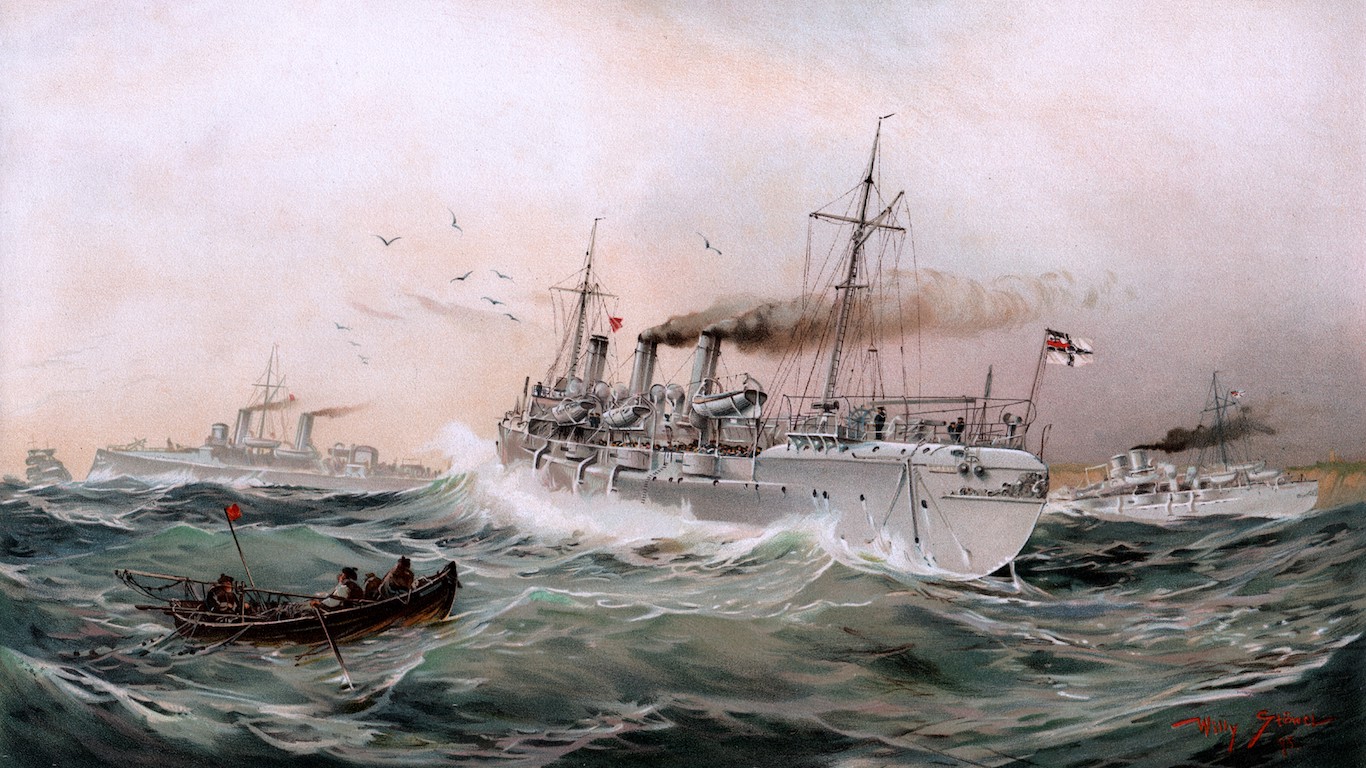
5. Tuesday, Feb. 29, 1916
Besides the countless struggles on land between the great powers in World War I, the conflict raged on the high seas as well. In the North Sea, the German auxiliary cruiser SMS Greif attacked four Royal Navy ships and sank one, killing 68 sailors. The British ships then sank the Greif, killing 130 sailors and capturing 220.
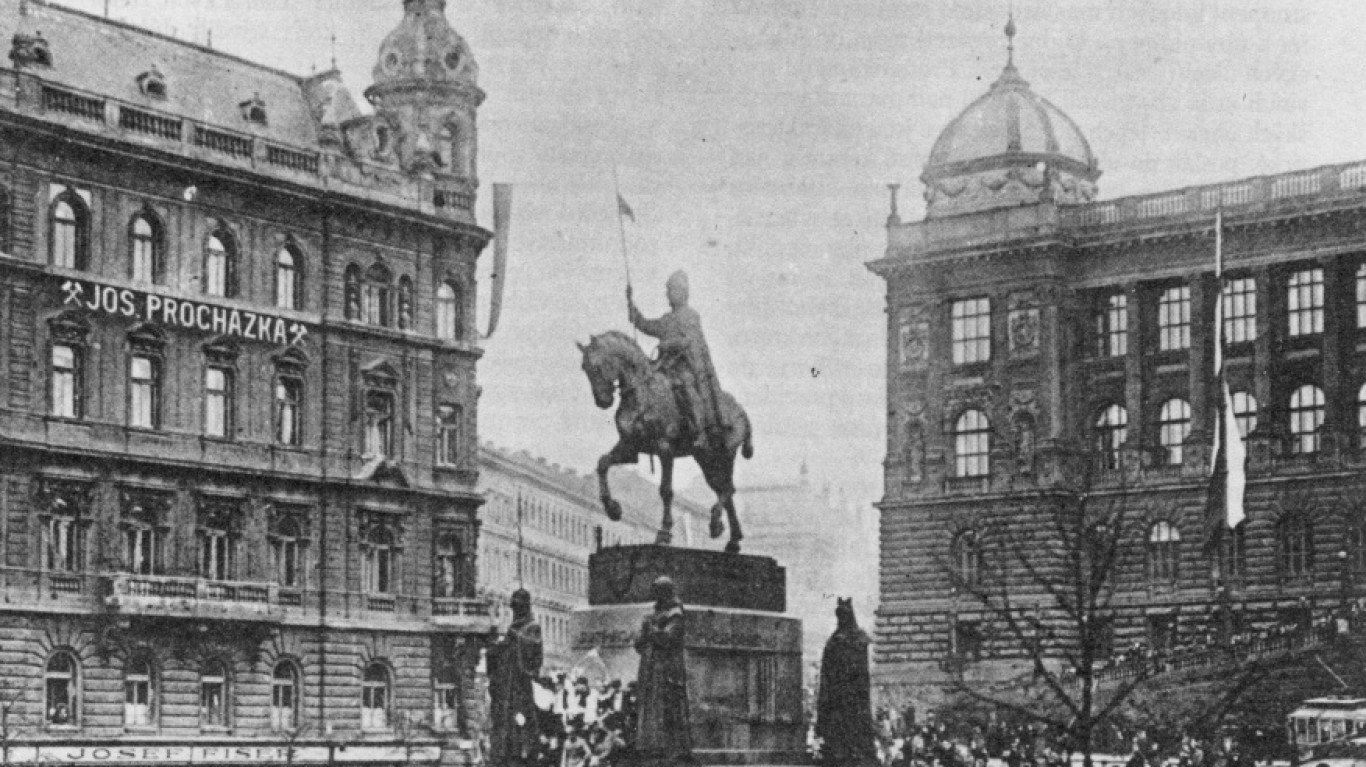
6. Sunday, Feb. 29, 1920
The newly created democracy of Czechoslovakia, which had been part of the Austro-Hungarian empire before WWI, adopted a constitution for the first time.
[in-text-ad]
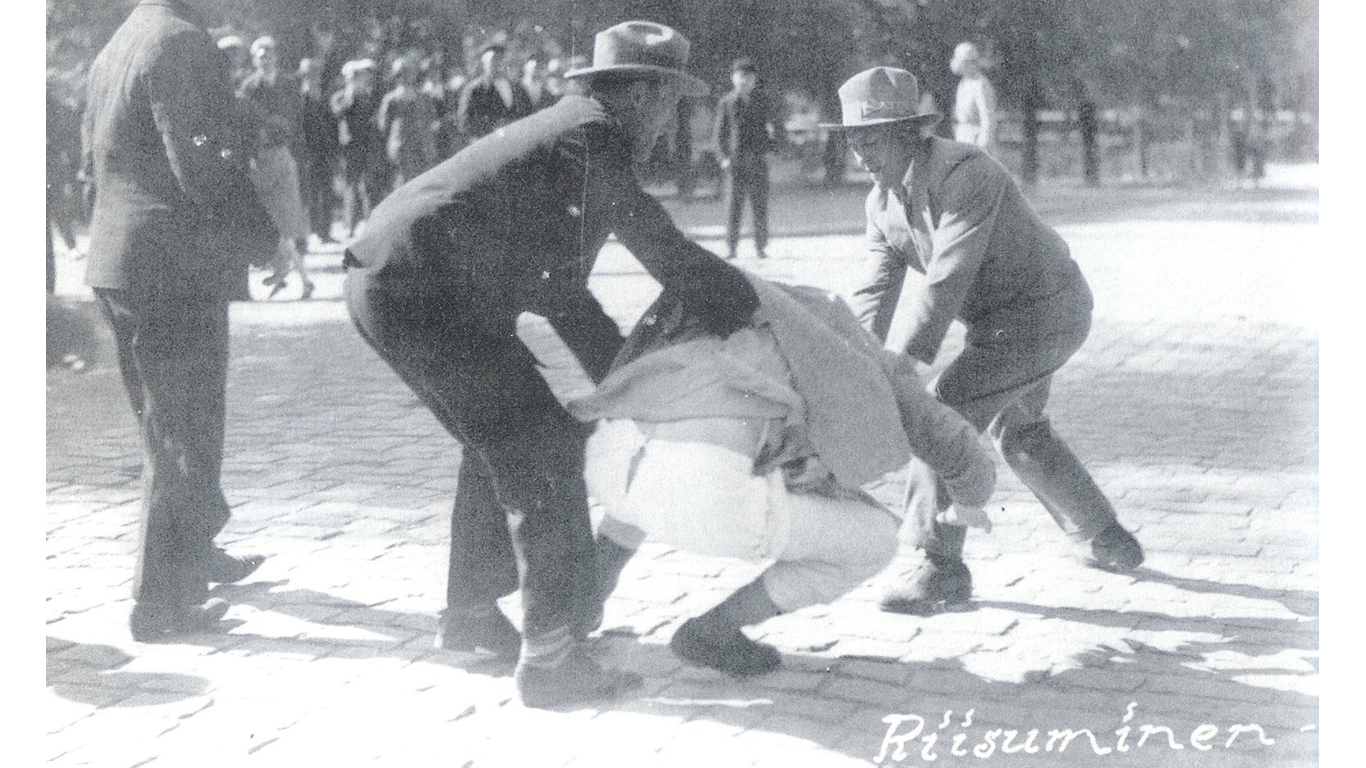
7. Monday, Feb. 29, 1932
Fascism succeeded in taking over governments in Germany and Italy after WWI, but it failed to do so in Finland in 1932. A coup attempted by the far-right Lapua Movement was thwarted.
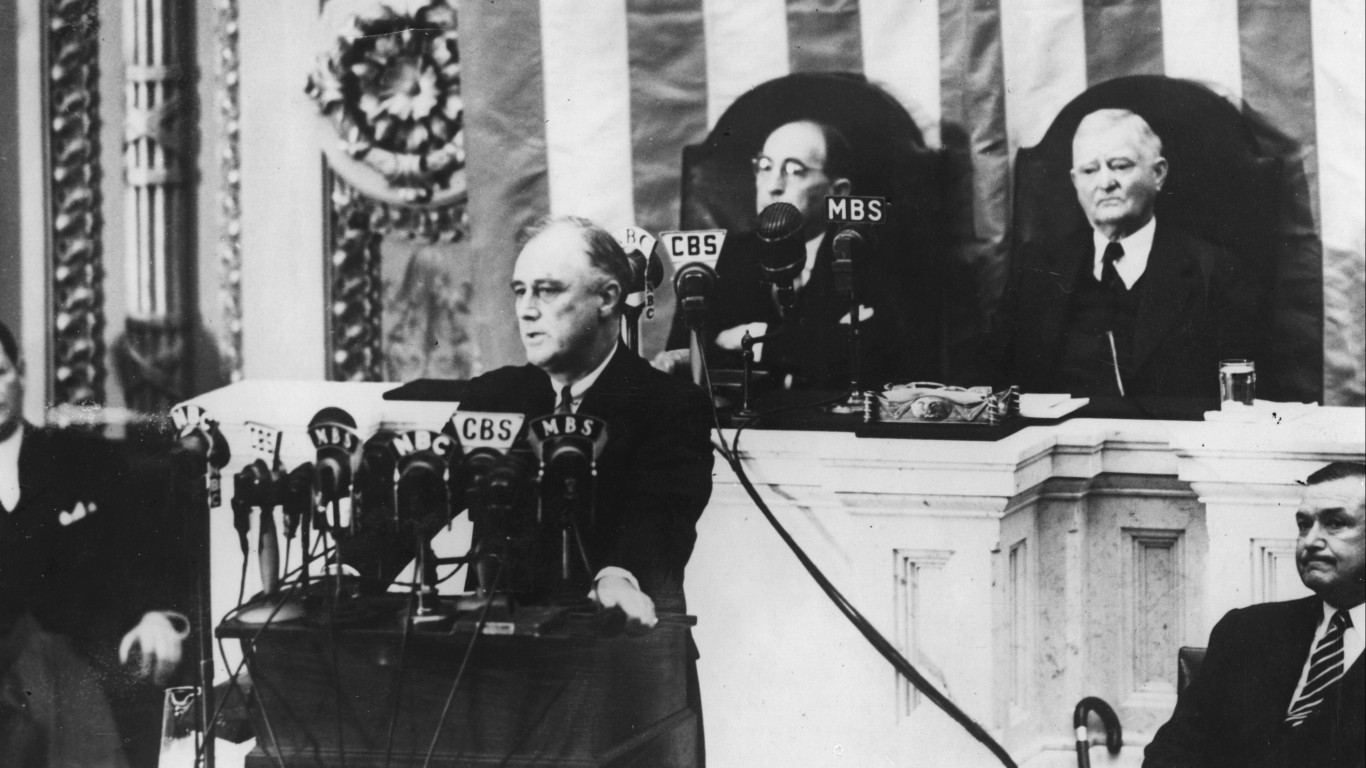
8. Saturday, Feb. 29, 1936
With war storm clouds gathering in Europe and saber-rattling by Japan in Asia, President Franklin Roosvelt signed a second neutrality act to keep America from getting involved in overseas conflicts. This measure forbade the sale of raw material and the making of loans to warring nations.
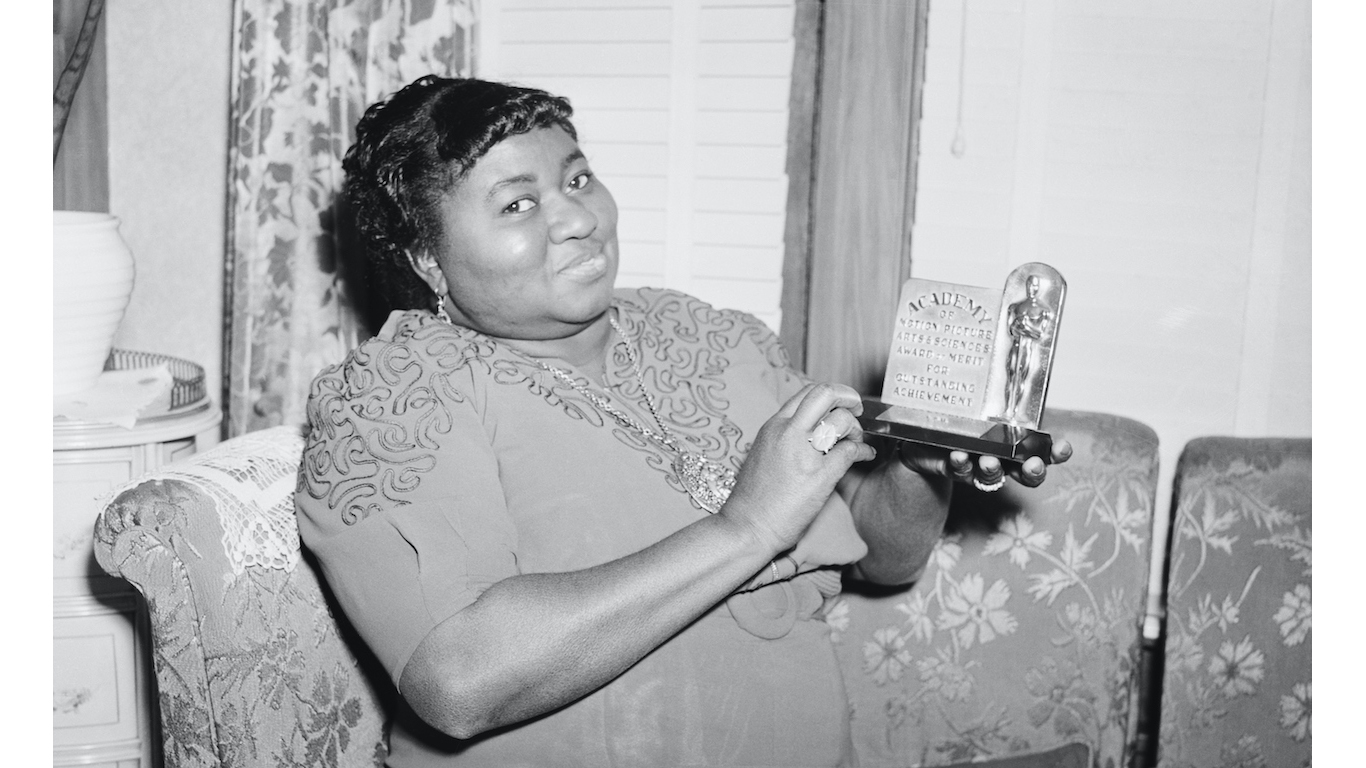
9. Thursday, Feb. 29, 1940
Hattie McDaniel, the daughter of two former slaves, made history in 1940 by becoming the first African American woman to win an Academy Award for her role in the blockbuster “Gone With the Wind.”
[in-text-ad-2]
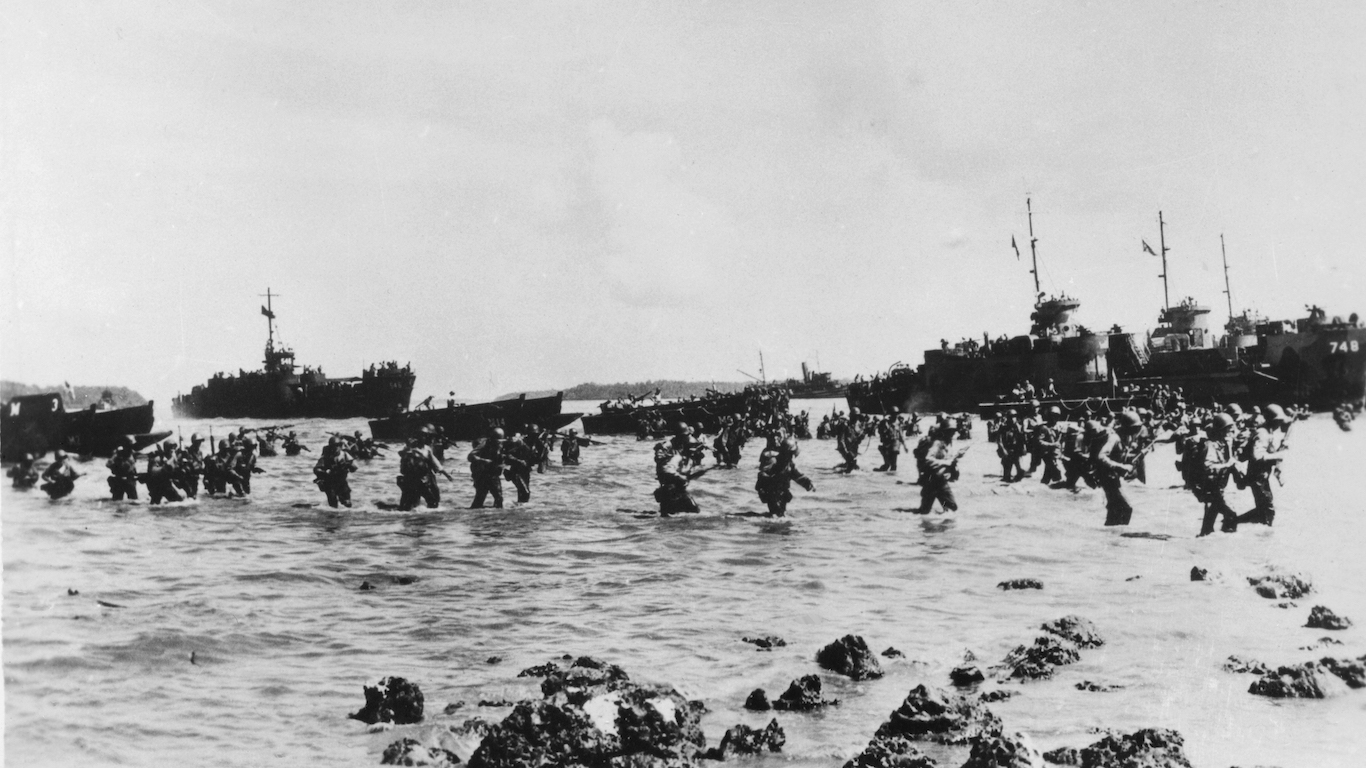
10. Tuesday, Feb. 29, 1944
Fearful of the mostly communist-led underground in Indonesia, the occupying Japanese Army announced death sentences for the party’s leaders.
Also that day, American troops landed on Los Negros in the Admiralty Islands to begin their campaign of capturing that island group.

11. Sunday, Feb. 29, 1948
Violence flared in British-occupied Palestine in the months before the founding of the state of Israel. On Feb. 29, 26 British soldiers were killed and 50 others wounded when a Cairo-Haifa train was blown out. The Stern Group took responsibility for the attack, which they said was in retaliation for a blast in Jerusalem the previous Sunday that killed 50 Jews.
[in-text-ad]

12. Friday, Feb. 29, 1952
American figure skaters completed an unprecedented sweep at the World Men’s Figure Skating Championship in Paris. Dick Button won his fifth straight world title, ahead of U.S. teammates James Grogan and Hayes Alan Jenkins. Button also won a gold medal during the 1952 Winter Olympic Games in Oslo.
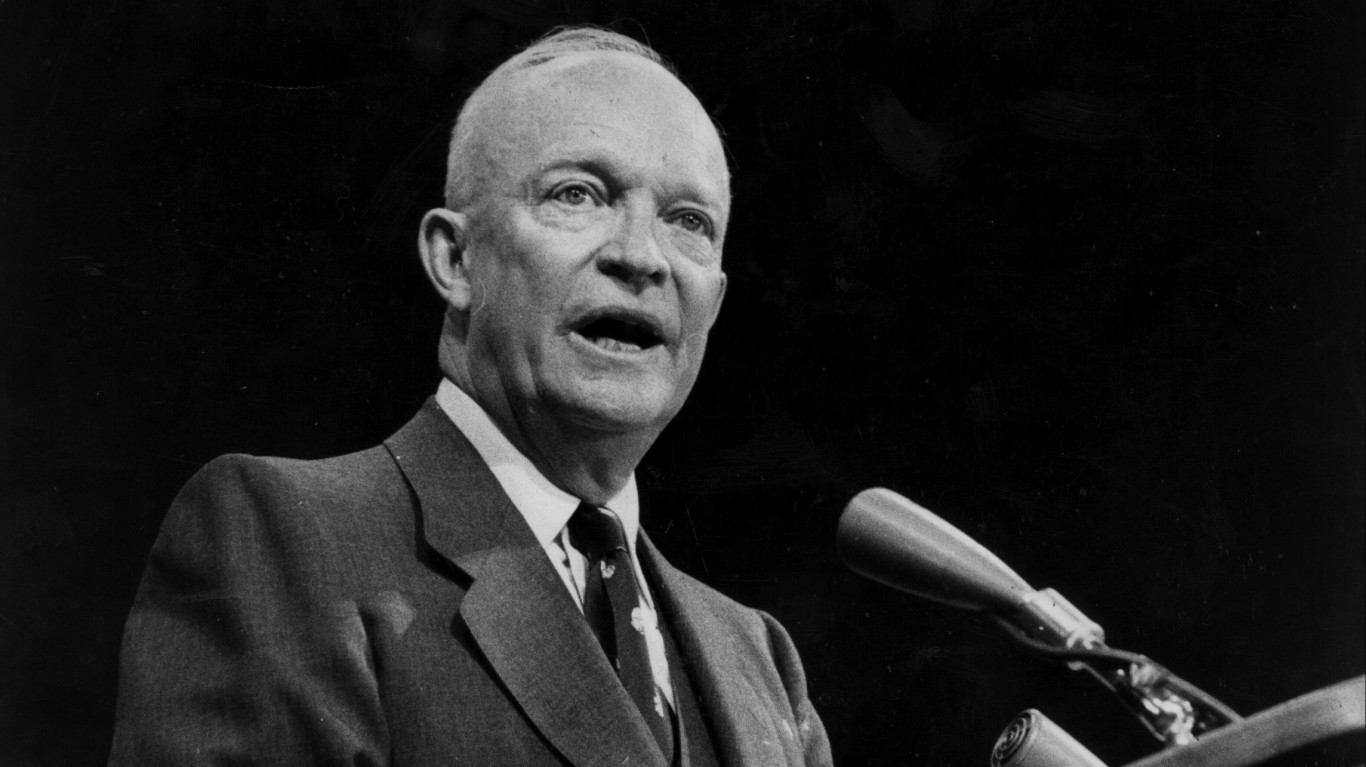
13. Wednesday, Feb. 29, 1956
President Dwight D. Eisenhower, who won the presidency in a landslide in 1952, announced that he would run for a second term.

14. Monday, Feb. 29, 1960
An earthquake that measured 6.7 on the Richter scale wiped out the city of Agadir in Morocco and killed about 15,000 people, or one-third of the population.
In the United States, Hugh Hefner, who flouted conservative mores by creating the men’s entertainment magazine Playboy in the 1950s, opened the first Playboy Club in Chicago, with hostesses clad in bunny outfits.
[in-text-ad-2]
15. Saturday, Feb. 29, 1964
It took 13 overtime periods before Boone Trail High School defeated Angier High School, both of North Carolina, 56-54, to win the Harnett County boys basketball championship, the longest high school basketball game in U.S. history. The two teams played only their starting five and used no substitutes.
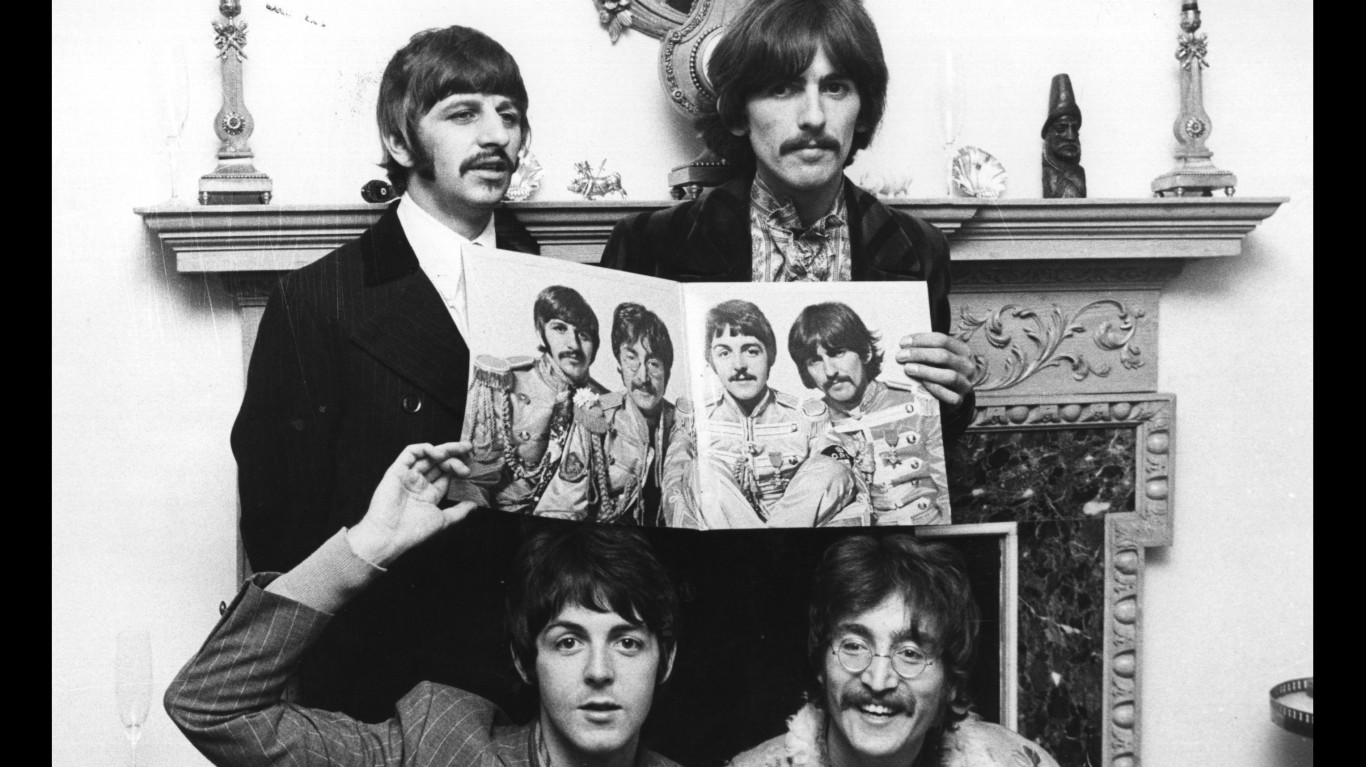
16. Thursday, Feb. 29, 1968
The Beatles’ groundbreaking album “Sgt Pepper’s Lonely Hearts Club Band” won the Grammy Award for Album of the Year, the first rock LP to accomplish that feat.
[in-text-ad]

17. Tuesday, Feb. 29, 1972
Atlanta Braves outfielder Hank Aaron, who would set the all-time home run record (at the time) two years later, became the first MLB player to sign a contract worth more than $200,000 per year.
18. Sunday, Feb. 29, 1976
Race car legend Richard Petty defeated Darrell Waltrip to win the Carolina 500, the only Winston Cup race ever contested on Leap Day.

19. Friday, Feb. 29, 1980
Gordie Howe, professional hockey’s ageless wonder, put an exclamation mark on his 26-year NHL career by scoring his 800th goal in his final season as a member of the Hartford Whalers. Only Wayne Gretzky has scored more goals.
[in-text-ad-2]
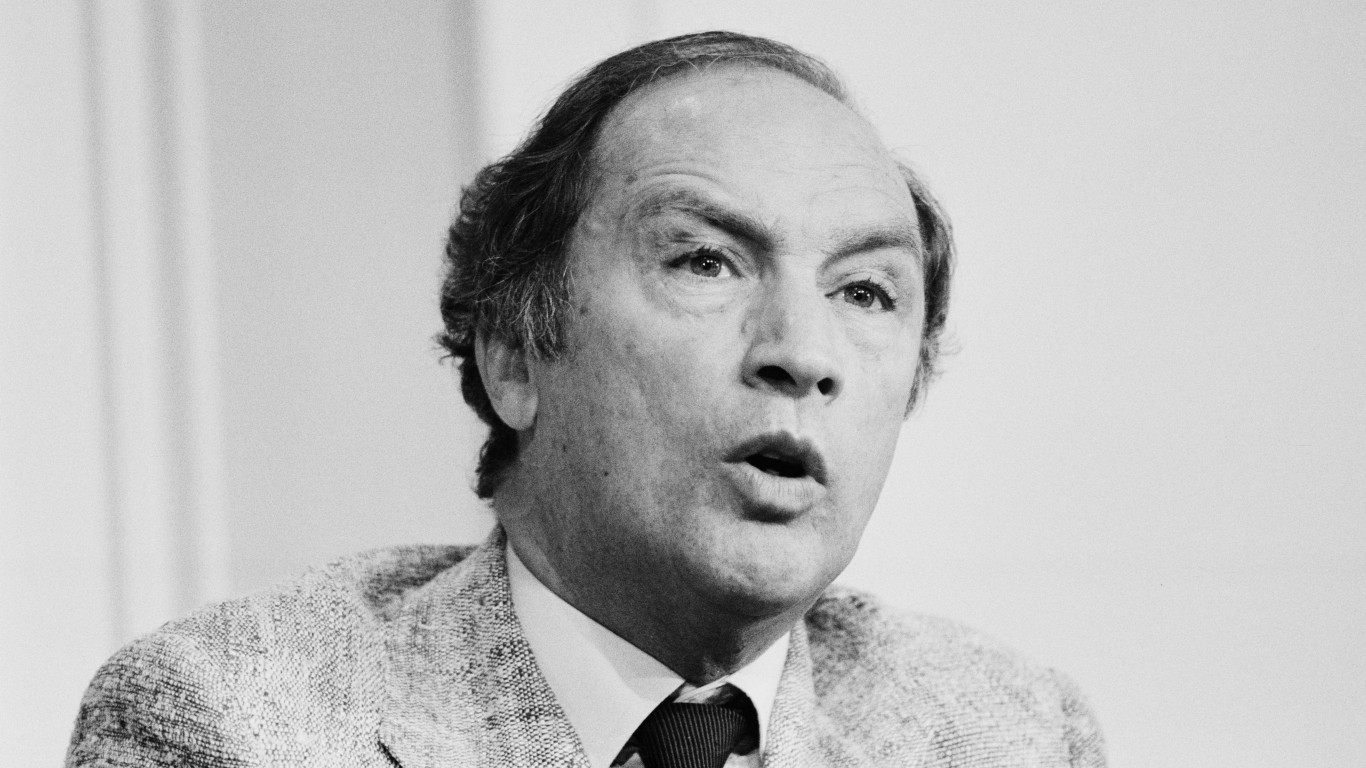
20. Wednesday, Feb. 29, 1984
After serving as Canada’s prime minister for 15 years, Pierre Trudeau announced that he was retiring from politics. His son, Justin Trudeau, has been the country’s prime minister since 2015.
21. Thursday, Feb. 29, 1996
Serbian forces pulled out of the city of Sarajevo, ending a 1,425-day siege, the longest of a capital in modern warfare.
[in-text-ad]

22. Tuesday, Feb. 29, 2000
Six-year-old Dedric Owens shot and killed classmate Kayla Rolland at Buell Elementary School in Mount Morris Township, Michigan. Rolland was believed to be the youngest school-shooting victim in American history, and Owens the youngest shooter.

23. Sunday, Feb. 29, 2004
Under pressure from the United States and facing a growing rebellion from those opposed to his crackdown on political dissent, Jean-Bertrand Aristide resigned as president of Haiti.

24. Friday, Feb. 29, 2008
Two employees of the U.S. Department of Agriculture were placed on paid leave of absence while the agency investigates the reason for the recall of 143 million pounds of beef — the largest meat recall in U.S. history.
[in-text-ad-2]

25. Wednesday, Feb. 29, 2012
Davy Jones, the sole British member of the pop group The Monkees, died at age 66. Jones was the lead singer of the group that posted three No. 1 singles on the Billboard Hot 100 in the mid and late 1960s.
Credit card companies are handing out rewards and benefits to win the best customers. A good cash back card can be worth thousands of dollars a year in free money, not to mention other perks like travel, insurance, and access to fancy lounges. See our top picks for the best credit cards today. You won’t want to miss some of these offers.
Flywheel Publishing has partnered with CardRatings for our coverage of credit card products. Flywheel Publishing and CardRatings may receive a commission from card issuers.
Thank you for reading! Have some feedback for us?
Contact the 24/7 Wall St. editorial team.
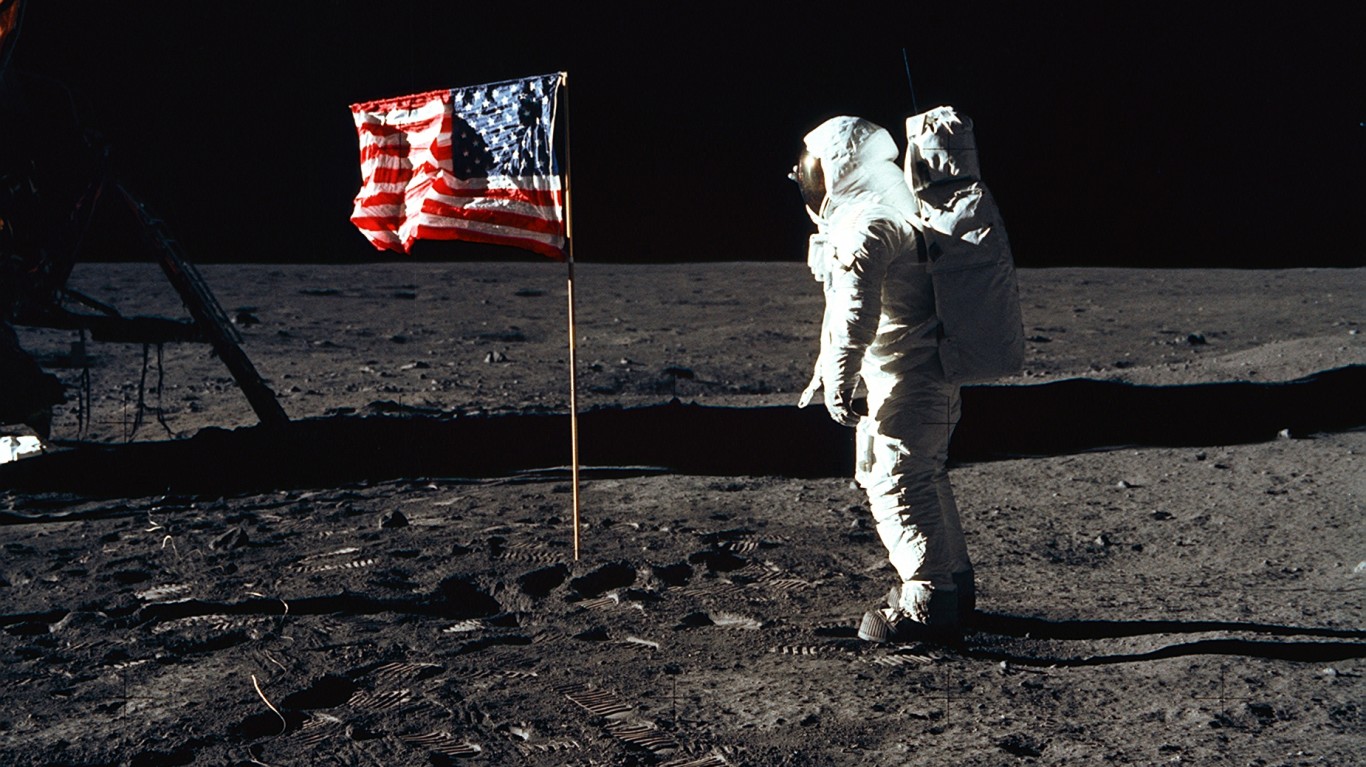 24/7 Wall St.
24/7 Wall St.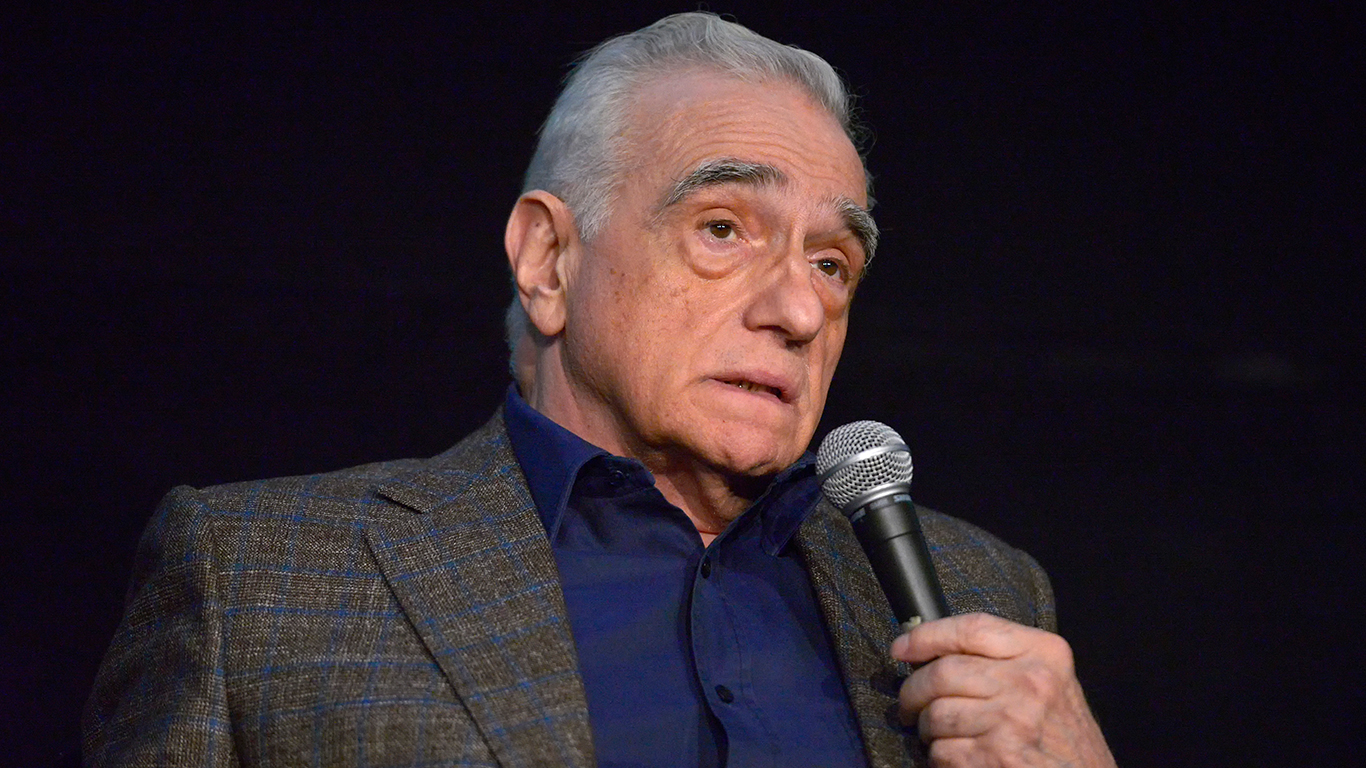 24/7 Wall St.
24/7 Wall St.